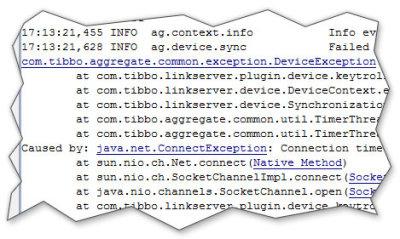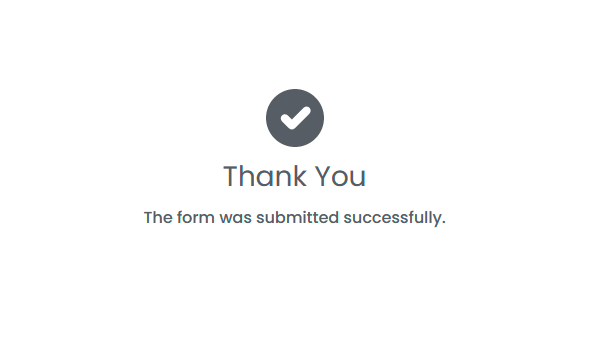Logging
As with most enterprise software, AggreGate Server spares no effort when it comes to logging. Everything can be logged, and logging configuration can be changed at runtime without restarting the server.
Logging is divided into more than one hundred categories (such as database, device communications, UI, etc.) with many more subcategories. For example, each device driver logs its activities and problems into its own dedicated subcategory. Developers adding new drivers and modules can introduce and use their own logging categories and subcategories.
Logging output may be sent to:
| Console | Database |
| Text file | Remote network server |
| XML file | E-mail messages |
| Windows event log | Java Message Service (JMS) |
| UNIX Syslog | And many other destinations |
There are five logging levels: debug, info, warning, error, and fatal. Logging in each category and level combination can be redirected into a separate set of destinations.
Event-Based Logging
While "classic" server logging is very suitable for debugging new developments (such as custom drivers and plugins) and diagnosing the server problems, all valuable operational information is also logged in the form of the unified data model events. Those events pass through the full event processing workflow and then get delivered to remote system operators, revoking the necessity of the server log file analysis and ensuring much higher manageability.

